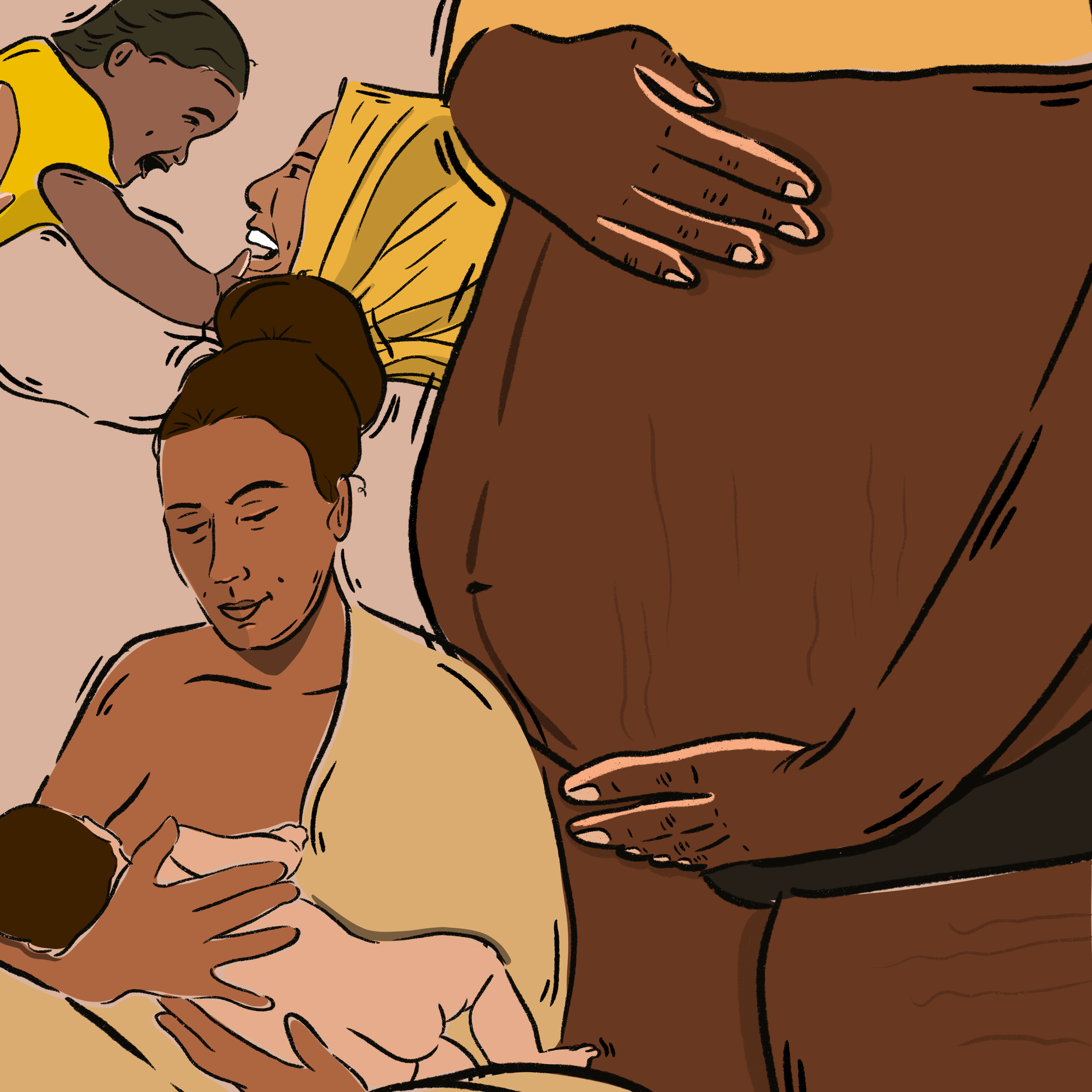If you’re a birthing parent, know a parent or just want to advocate for yourself
Check out this Black & Brown Maternal Health Toolkit
What is this?
This kit will supply questions for people to utilize during their pregnancy but these questions can also be used for conversations one would have with their health and medical doctor/team. This project was created with love and concern for our communities by cohort 9 on the Transformational Leadership Program offered through Urban Core Collective.Who is this for?
This is a maternal health advocacy kit for Black and Brown birthing folks.This kit was created to help those marginalized folks but holds information for anyone to use. The creation of this kit came from the need of these communities. This aims to serve those in underfunded zip codes such as 49507 - 49509 in Grand Rapids, Michigan. Why is there a need for this?
Black women are 4x more likely to die from avoidable birth related complications regardless of socioeconomic status than any other race. This is a national crisis for this community. Women and people of color are disproportionately ignored and killed because of implicit bias in the medical and health industry.On behalf of the Cohort #9 members of the Transitional Leadership Program, we’d like to thank…
UCC for the opportunity to participate in this program and showcase our passions. We thank Kiara Baskin for her resources and guidance in Birth Work and community involvement. We thank group members for their knowledge and continuous contributions to the betterment of Grand Rapids for black and brown folks. We thank our ancestors for their lived experiences and passed down wisdom. We also thank every person, organization, and business listed in this toolkit as a resource for their hard work and dedication.
This project was created with love and concern for our communities.
What should advocacy look like?
Advocacy should look like equity. Advocacy is speaking up and speaking out, asking questions, learning more about your body and voicing your concern or the concern of others. Advocacy should look like community and helping those whose voices go unheard.What should advocacy feel like?
Advocacy should feel like you’re being heard. It should feel like you’re being cared for and your concerns are being addressed. Speaking up for others to be heard, not speaking over these marginalized voices.
